Fall can be lovely but it also comes with a bit of a problem for gardeners. What to do with all the fallen leaves? Can you mulch them? But if you do, will they kill your grass and make your lawn look like a sad state? We raised these concerns to the gardening experts and here's what we got from them.
Mulched leaves are good for grass since they add nutrients to the soil and help with weed control. However, make sure that the mulch is thin enough to be able to filter through the leaves of grass and settle on the soil. Too many mulched leaves can smother and kill the grass.
Keep on reading so we can explain further how mulching leaves can benefit your turf and when you should draw the line so that you won't end up killing the grass. We'll also teach you how to mulch leaves on your lawn with or without a mower. Let's go right into it!
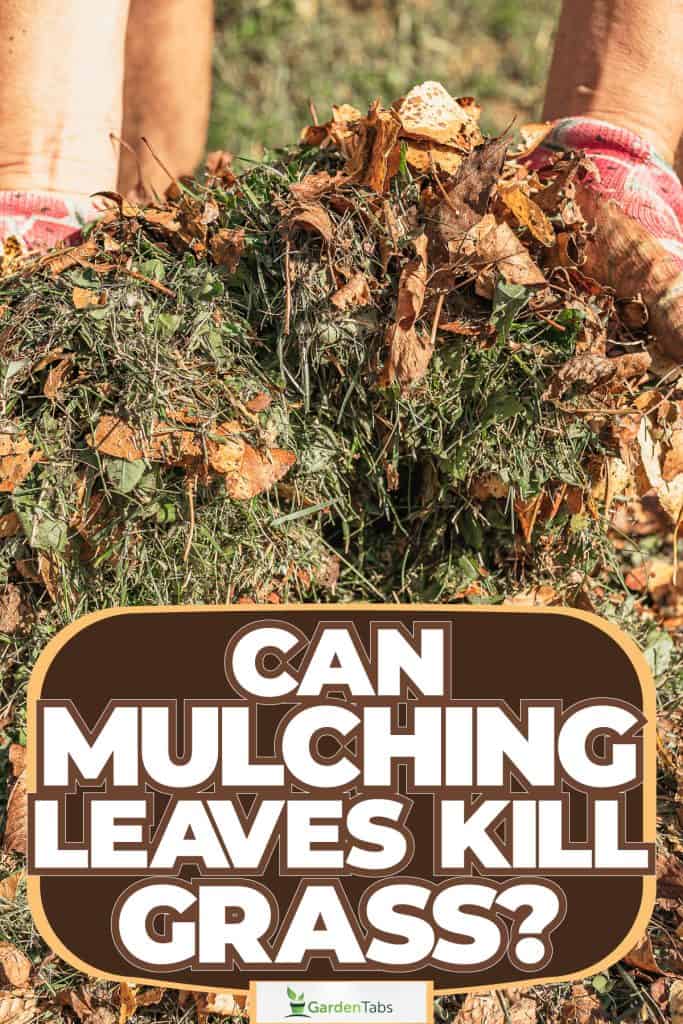
Are leaves good for grass?
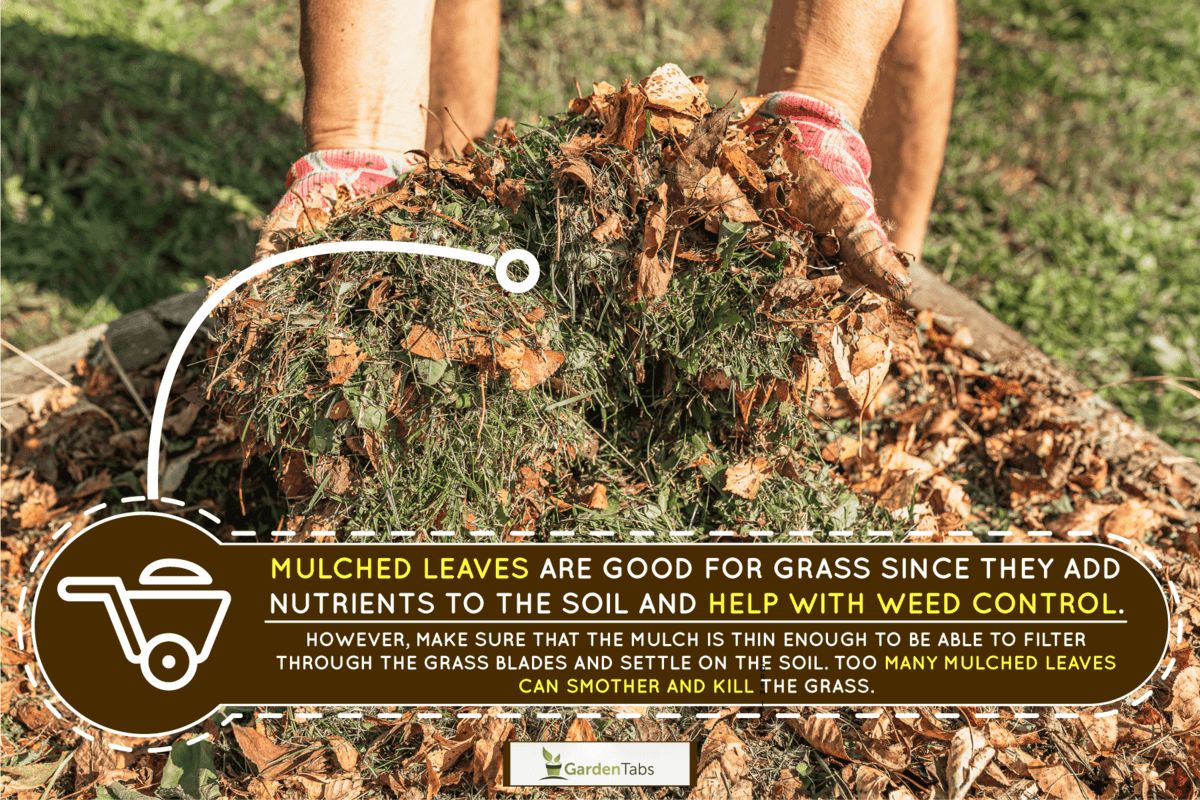
Mulching has been a common practice among gardeners. The added layer on top of the soil helps keep the soil warm and moist and prevents erosion. Some even have properties that enhance the quality and nutrition of the soil. And of course, mulches can elevate the look of your lawn or garden by highlighting portions that you want to feature.
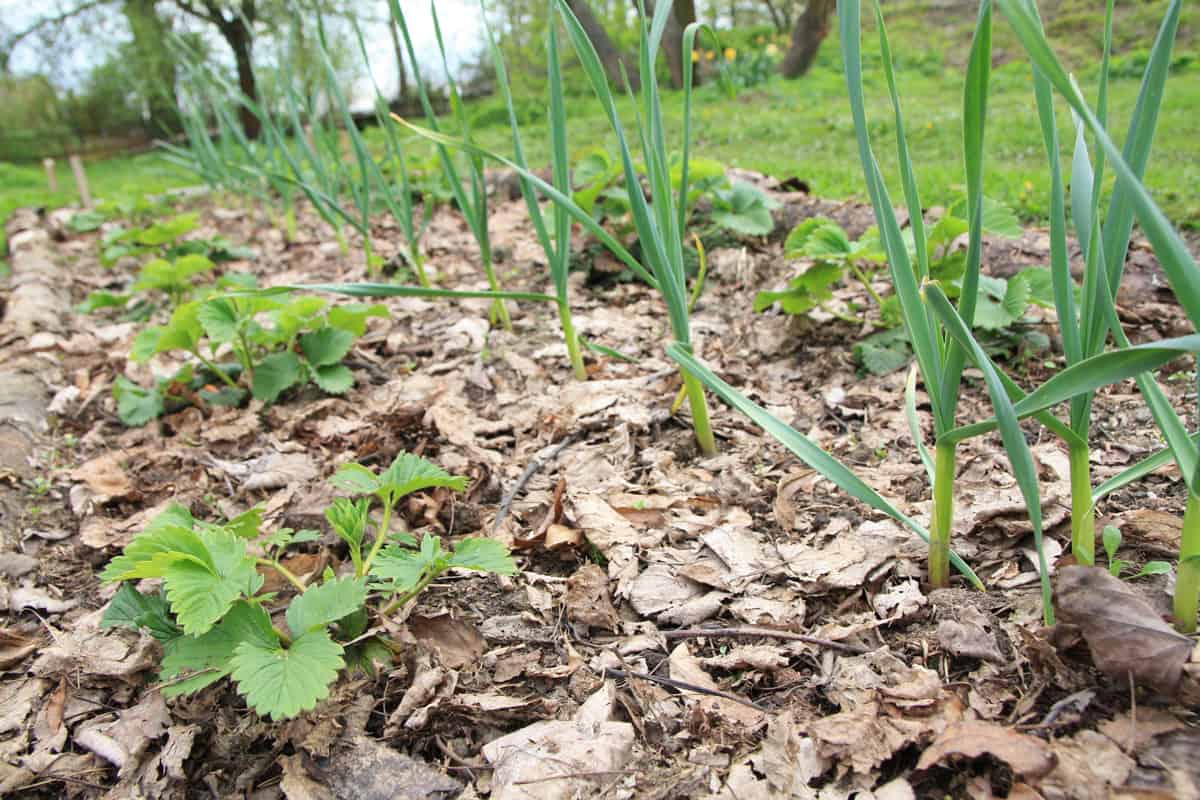
There are different materials that you can use as mulch. One of them is dried leaves. These are easily sourced from your own garden which means you won't have to buy the material that you'll use for mulching.
Another advantage of leaf mulch is that they add nutrients to the soil. Leaves are rich in nitrogen which is a very important nutrient for plants so basically, using them as mulch is like giving fertilizer to the soil.
This is why using leaf mulch is good for the grass. It is an organic mulch that can help enrich the soil. It can also help with weed control. Mulched leaves would also blend just right with the rest of your lawn.
Mulching Leaves is Better than Raking
Mulching leaves is also seen as a better alternative to just raking off the fallen leaves. Aside from thinking about where to store your garden waste, raking is a tedious task and can hurt your turf. It can scrape off young grass and even seeds that haven't germinated yet.
You also have to dispose of the raked leaves properly. If you don't, some of them might end up in waterways that could clog drains or affect the quality of the water.
You need to put them in bags, tie them up, and drop them at a composting or garden waste disposal center. If there are too many leaves on your property, you might even have to get the services of a yard cleaning company.
Overall, it is more costly than mulching leaves. Environmentalists also say that the carbon footprint for raking is also bigger since there are too many resources involved during their disposal.
When you're mulching the fallen leaves in your garden, you put the supposed garden waste into good use. It is easier to do with the help of a lawn mower as you just shred the leaves into finer pieces. You can put the leaf mulch on your lawn and other parts of your garden. Once the leaves decompose, they will help make the soil healthier for your plants.
However, when you're mulching leaves, you have to be mindful of the amount of leaf mulch that you use on your lawn. It shouldn't be too thick that it would already cover the turf. Too much of it will smother the grass and kill it. It would block sunlight from reaching the sun-loving grass.
The Problem with Leaves
When you leave leaves scattered all over your lawn, they cover your grass. As such, sunlight and air can't reach the turf. This means that the grass won't be able to make the food or sugars that it needs for nutrition. As a consequence, your lawn won't be lush and healthy.
Piles of leaves can also cause damage especially when it rains. They will be soaked with rainwater and can encourage mold or fungal growth. Some leaves can also carry diseases that may affect other plants in your garden, not just your turf.
That's why expert gardeners advise you not to allow the leaves to pile up and make good use of them by using them as mulch in your lawn, trees, and plant beds.
How To Mulch Fall Leaves Into Your Lawn
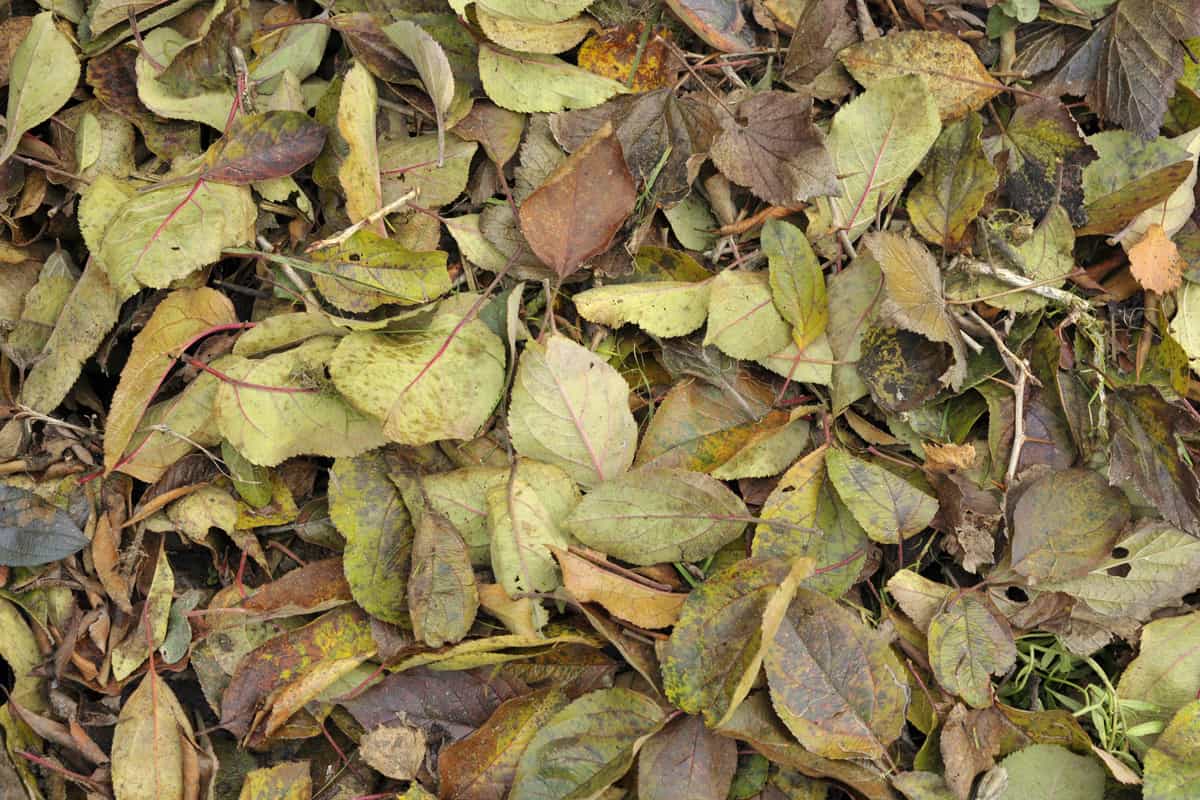
Mulching the fallen leaves is so easy to do. Use your lawn mower (without the bagger) to shred them into smaller pieces and just let them fall on your turf.
Most mowers come with a mulching attachment to make this process easier but if you don't have one, you can still use your lawn mower. Just raise the mower deck to around 2.5 to 3 inches, not too low and not too high. This is the best height setting to prevent overworking your mower motor. You also won't cut your grass too low which would not help in preparing your lawn for the colder months ahead.
Next, remove the grass catcher. You can now go over the fallen leaves on your lawn. Repeat until the leaves are shredded into small pieces.
The finely chopped mulched leaves will be pushed down the lawn. They can then settle beneath the grass blades and into the soil. The smaller the leaves are, the quicker they'll decompose and return the nutrients to the soil. That's how they help fertilize the soil.
It is recommended that you do this shortly after the leaves have fallen which basically means you have to mow more frequently during fall. Once a week should do the trick. This makes the task much easier for you and your mower.
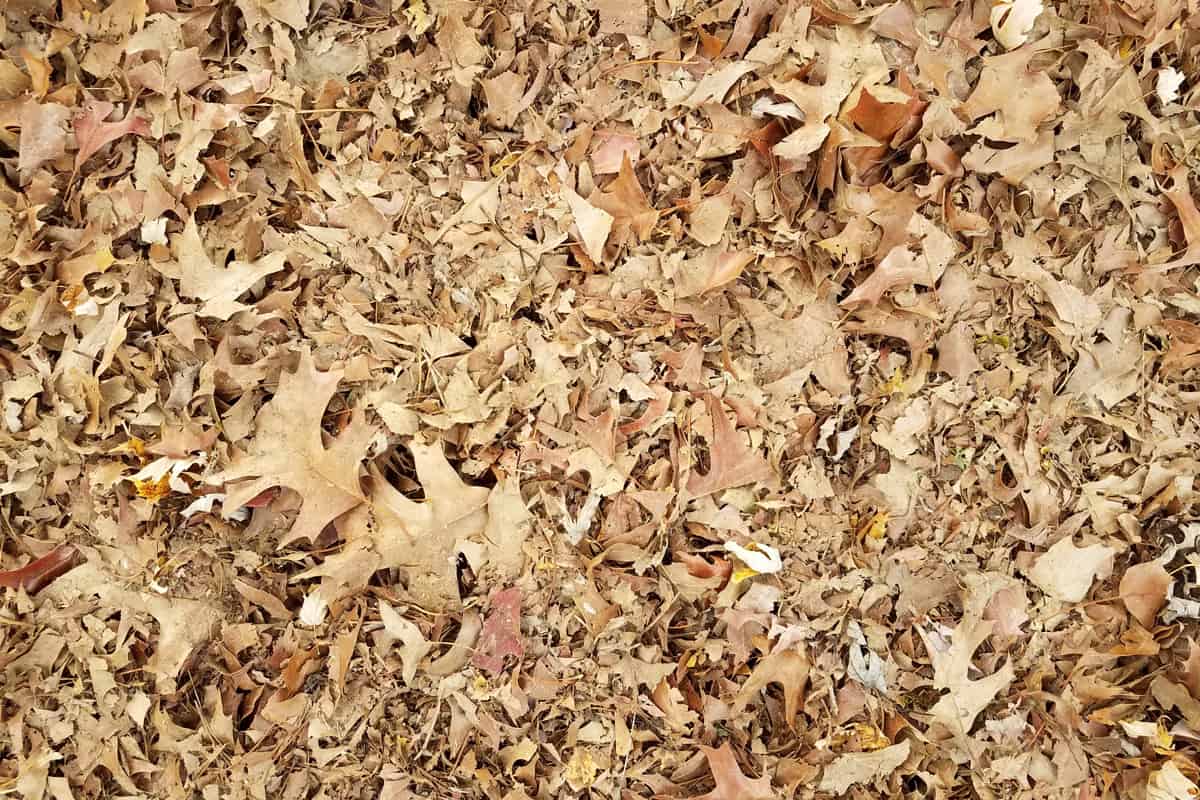
Don't wait until the pile reaches more than an inch in depth or else it'll take you longer to get the job done and you'll be missing out on the nutritional value that mulched leaves have to offer to your lawn.
Mowing the fallen leaves right away ensures that the leaves don't pile up and cover your turf. If there are more than enough leaves for your lawn, use the mulched leaves to cover other areas of your garden such as your trees and shrubs. Just don't leave the fallen leaves unattended so as not to kill your turf.
How to Mulch Leaves Without A Mower
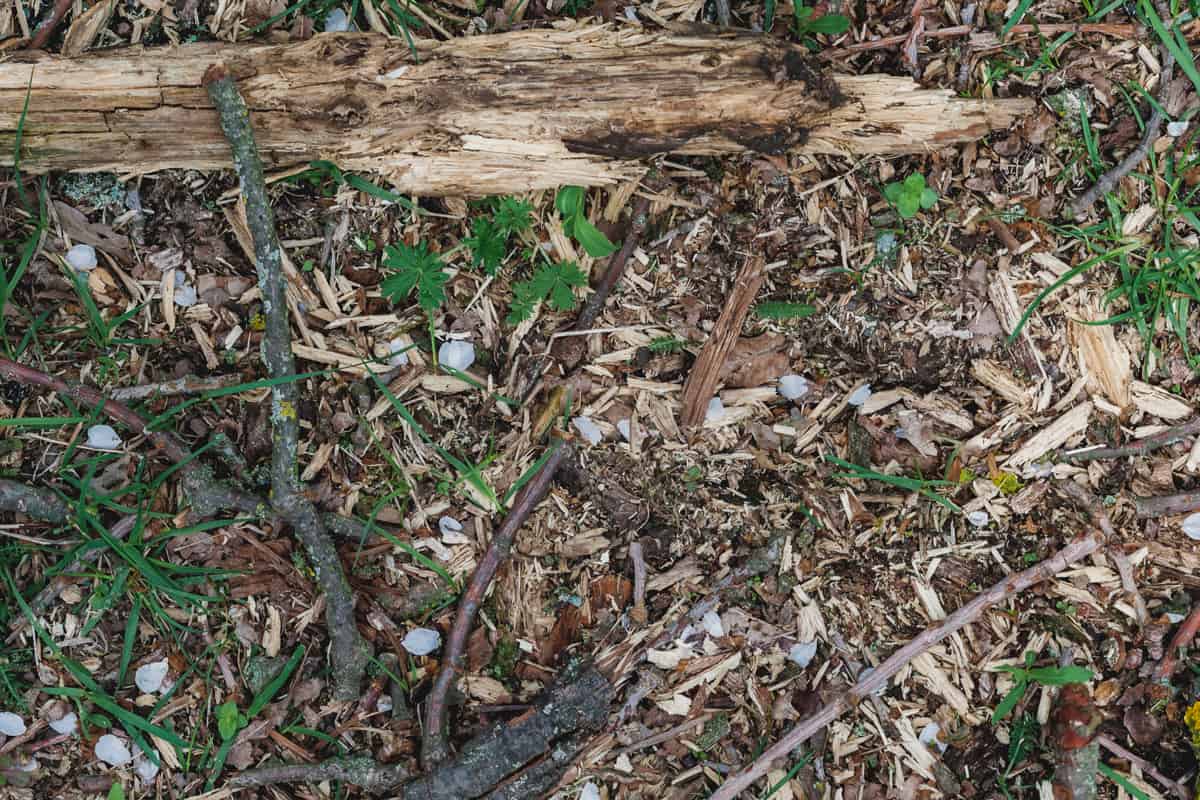
Of course, it is much easier to mulch leaves when you have a lawn mower. But if yours is not working or you don't have one at your disposal, there are other ways to go about it.
Using Other Equipment
If you have a string trimmer or leaf shredder, you can use them instead. A string trimmer can help you cut small batches of leaves while the leaf shredder will allow you to mulch all of the fallen leaves all at once.
Here's how to do it.
With a String Trimmer
- Use a rake or leaf blower to gather all the fallen leaves in one place.
- Put some of the leaves in a trash can. You could fill it halfway.
- Put the string trimmer inside the trash can and cut the leaves into smaller pieces.
- Repeat until all the leaves are mulched.
Find this string trimmer on Amazon.
With a Leaf Shredder
- Put a trash can or sack at the mouth of the leaf shredder. This will catch the mulched leaves.
- Gather all the fallen leaves in the yard using a leaf blower or rake.
- Put the leaves inside the leaf shredder and turn the unit on.
Check out this leaf shredder on Amazon.
Using Your Car
If you don't have any of the specialized equipment, don't worry because you can always use your car to mulch the leaves. The sheer weight of the vehicle is enough to crush the leaves into smaller pieces. Here's how to do it.
- Gather all the leaves in one place.
- Remove any large sticks, stones, or anything that might hurt your tires.
- Pile the leaves into two. Create as much space between them as the space between your tires.
- Drive forward and backward over the leaves about 5 to 10 times.
- Rake all of the mulched leaves and shovel them to your lawn and plant beds.
Use Leaves As Compost
If you don't have the equipment or don't feel like mulching the leaves at all, you can still put your garden waste to good use by adding it to your compost heap. Leaves are rich in nitrogen so they'll add nutritional value to your compost once they decompose.
Final Thoughts
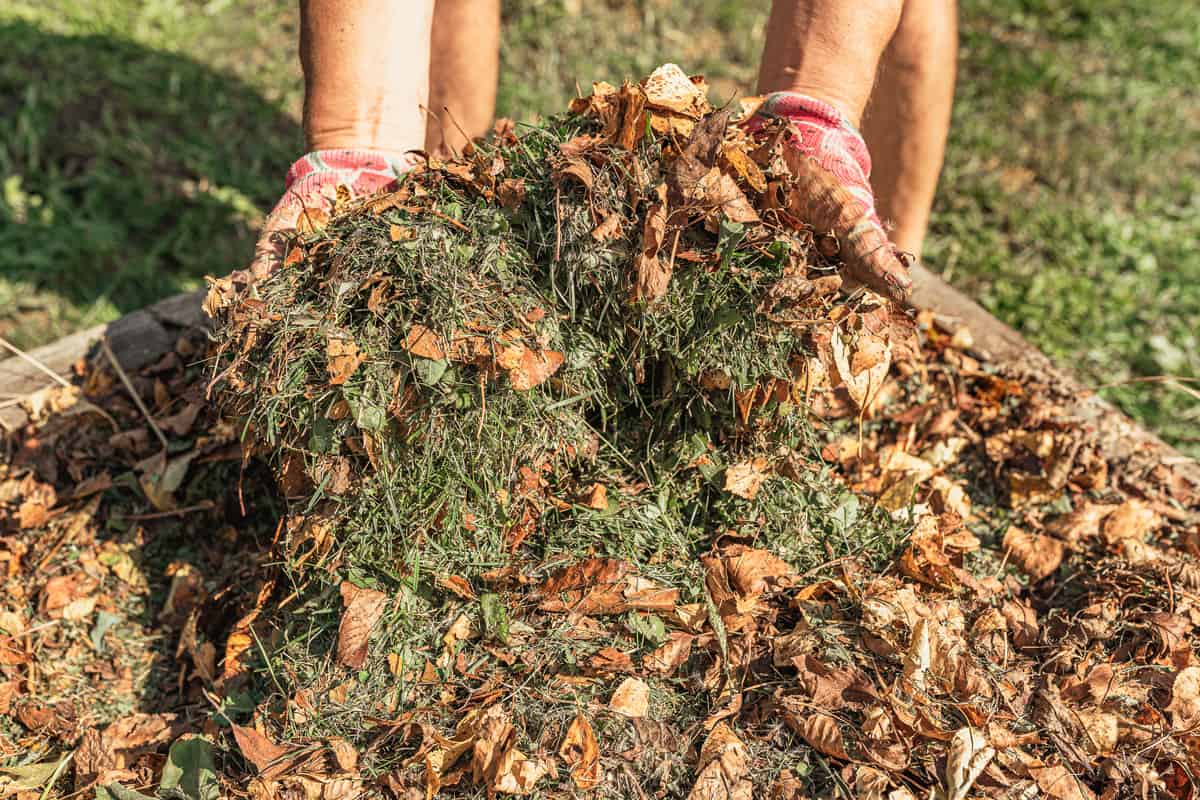
Put just enough leaf mulch on your turf and you'll be able to harness the benefits that it brings. It's like fertilizer to your soil so your turf will definitely love it. But use too much of it and it'll end up killing your grass. Keep mowing those leaves to make good use of them.
To know more about mulching, you can read the following posts:


